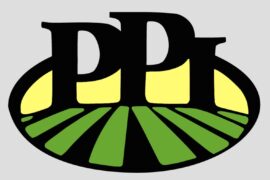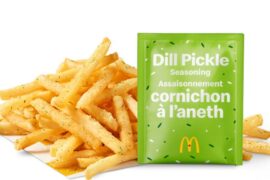The future for french fries, or at least for the continued supply of raw material to make the popular product, is now more secure thanks to natural deep freezing, long term thinking and present day action among members of the Norwegian government, NordGen Genebank, Global Crop Diversity Trust and the United Nations.
As a significant step towards preserving the world’s most important ancient crops for generations of humankind to come, the head of the UN agriculture agency, together with scientists and delegations from Peru, Costa Rica and Norway, on August 27 witnessed a ceremony highlighted by the deposit of seed potatoes into “safety boxes” of the Svalbard Global Seed Vault dug into a mountainside on a remote island nearly 1,000 kilometers north of mainland Norway. This should assure survivability in perpetuity in the event of major natural or manmade disasters, pestilence, disease outbreaks, other unforeseen calamities or doomsday scenarios.
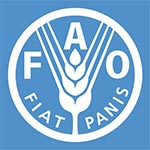 “In a few decades, our planet’s food systems will need to feed an additional 2 billion people,” said José Graziano da Silva, director-general of the UN Food and Agriculture Organization (FAO), adding that producing more nutritious food will likely become all the more challenging.
“In a few decades, our planet’s food systems will need to feed an additional 2 billion people,” said José Graziano da Silva, director-general of the UN Food and Agriculture Organization (FAO), adding that producing more nutritious food will likely become all the more challenging.
Exactly 750 seed potatoes, as well as other wild potato relatives, were deposited by representatives of indigenous Andean communities from Peru, scientists from Costa Rica, FAO representatives and Norwegian government officials at the Svalbard Global Seed Vault in the Arctic Circle.
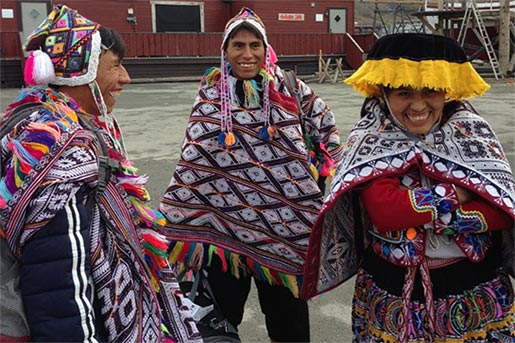 These members of the Andean indigenous communities helped establish the Potato Park in Peru in an area where tuber cultivation began thousands of years ago.
These members of the Andean indigenous communities helped establish the Potato Park in Peru in an area where tuber cultivation began thousands of years ago.
The vault, which currently holds over 860,000 food crop seeds from all over the world, is a back-up facility in the permafrost far north of the Arctic Circle. Co-funded by the Global Crop Diversity Trust and the government of Norway, its mission is to conserve the planet’s crop diversity for the food security of current and future generations.
The potato, which originated in the Andes of South America, is now the world’s third-most consumed food. Feeding over one billion people every day, the versatile tuber is low in fat with high protein, calcium and vitamin C.
However, shifts in weather patterns, agricultural modernization, land-use changes and diseases such as potato blight pose a critical challenge to this precious natural resource.
“Agricultural biodiversity – like that locked inside the potato seeds being deposited here – is essential to facing these challenges, by helping us develop better, more resilient crops,” said da Silva.
These seeds are made possible through benefit-sharing projects supported by FAO’s International Treaty on Plant Genetic Resources for Food and Agriculture. It aims to ensure that farmers and researchers have accessibility to a large diversity of seeds and other plant genetic material – and a fair share of the benefits resulting from any new varieties.
Thanks to the treaty, Andean farmers learned how to pollinate their tubers and collect seed potatoes for storage, with some being deposited in Svalbard.
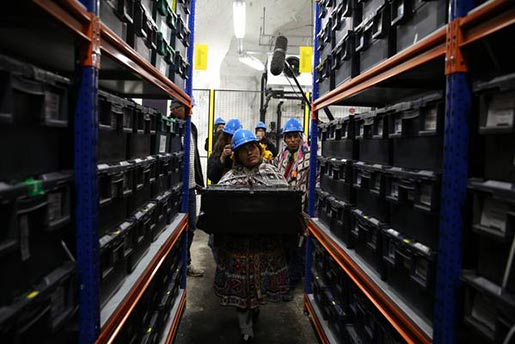 Indigenous Andean farmers deposit seed potatoes in the Svalbard vault in the Norwegian Arctic.
Indigenous Andean farmers deposit seed potatoes in the Svalbard vault in the Norwegian Arctic.
“This kind of international collaboration is vital for all of our futures. These seeds, and the Potato Park farmers who are the innovators and leaders of their preservation, have been on a remarkable journey – travelling over 11,000 kilometers from the mountains of Peru to Svalbard,” said Alejandro Argumedes, director of the Cusco, Peru-based indigenous people’s non-governmental organization.
“I am very proud that 40% of the crop diversity that are stored in the world’s gene banks by now is safeguarded in the seed vault. These seeds may be of crucial importance for global food production in the future,” said Hanne Maren Blaafjelldal, the Norwegian Ministry of Agriculture and Food’s state secretary.
The Potato Park, a model of holistic conservation of the traditional Andean landscape, situated within the Cusco Valley. It encompasses 9,280 hectares and is inhabited by 3,880 people and is home to eight known native and cultivated species and 2,300 varieties of the 235 species and over 4,000 varieties found in the world, as well as 23 of over 200 wild species on the planet.



